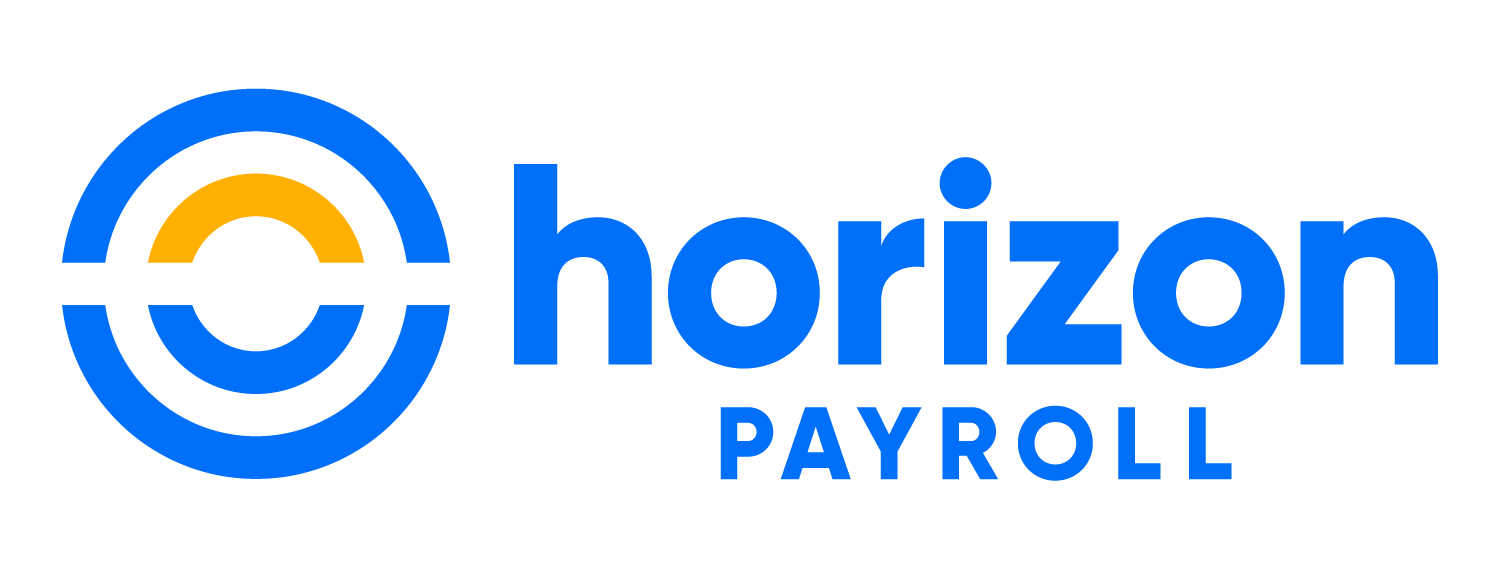8 min read
Horizon Stands Out in a World of Payroll Giants Like Paycor/Paychex
When it comes to payroll management, businesses are often faced with a tough decision: go with a big-name billion-dollar company like Paycor/Paychex...
Expert payroll management services with a personal touch.
View Solution Read Guide HR Support
HR SupportSimplify and personalize HR with a team of HR experts on-demand.
View Solution Read Guide Time & Attendance
Time & AttendanceWhy spend more unnecessary time and money managing your workforce?
View Solution Read Guide Hiring & Onboarding
Hiring & OnboardingTurn your candidates into employees with hiring & onboarding solutions.
View Solution Read GuideAdd On Solutions automate everyday tasks, prevent mistakes, and simplify business compliance.
View SolutionHelpful downloads and eBooks to empower your business.
Helpful tax and HR alerts to help keep your business compliant.
Payroll and tax-related forms and documents.
Horizon's blog provides valuable insight into payroll, compliance, human resources, and more.
See our client success stories for a case study on how we can help your business.
Payroll and HR strategy requires intelligent technology, personal attention and specialized expertise in the needs and nuances of your business.
We provide payroll and tax processing services for businesses from 1 to 1,000 employees or more. Today, we have nearly 1,000 customers in 40 states.
5 min read
![]() Horizon Payroll Solutions
:
February 17, 2025 at 5:30 PM
Horizon Payroll Solutions
:
February 17, 2025 at 5:30 PM
When employees think about payday, they’re not just thinking about numbers on a paycheck, they’re thinking about rent, groceries, childcare, student loans, and all the other financial obligations that keep life running smoothly. The timing of those paychecks can have a significant impact on their financial well-being and, ultimately, their mental health.
At first glance, it might seem like pay schedules are just an administrative detail. But in reality, the frequency and reliability of payroll can make or break an employee’s sense of security. Uncertainty or long gaps between paychecks can create stress, while a well-structured payroll system can provide stability and reduce anxiety. Let’s explore how different pay schedules impact employee mental health and what employers can do to support their workforce.
Financial stress is one of the leading causes of anxiety in the workplace. According to a study by PwC, 57% of employees cite financial stress as their number one source of anxiety. When pay schedules don’t align with employees’ financial needs, the result is often increased stress, lower productivity, and even higher turnover.
Some common ways payroll affects employee stress levels include:
Long Gaps Between Paychecks: Employees living paycheck to paycheck may struggle to cover unexpected expenses if they’re paid biweekly or monthly.
Inconsistent Pay Dates: If payday shifts unpredictably (due to bank holidays, payroll processing delays, etc.), it can create uncertainty and make budgeting difficult.
Financial stress is a leading contributor to employee anxiety and burnout. When workers face uncertainty about their financial future—whether it’s due to irregular paychecks or misaligned pay periods—stress levels can skyrocket. Research shows that regular and predictable income can help stabilize personal finances, enabling employees to manage bills, savings, and unexpected expenses with confidence. A consistent pay schedule not only boosts morale but also enhances productivity by reducing the mental load of financial worry.

A regular pay schedule allows employees to plan and budget effectively. When employees know exactly when their paycheck will arrive, they can manage their finances better, reducing anxiety over upcoming expenses. This predictability translates into lower stress levels and increased focus on work.
The frequency of pay—whether weekly, bi-weekly, or monthly—plays a significant role in how employees perceive their financial stability. For many, more frequent pay periods provide a continuous cash flow, which can be particularly beneficial for those living paycheck-to-paycheck. On the other hand, less frequent pay schedules may lead to prolonged periods of financial strain, increasing the risk of stress and burnout.
Aligning pay schedules with common financial obligations, such as rent or mortgage payments, can greatly ease the financial burden on employees. When employees receive their wages in time to cover these essential expenses, the associated stress diminishes, contributing to improved mental health and a more engaged workforce.
Beyond the mechanics of pay frequency, transparent communication about payroll processes is key. When employees understand how and when they will be paid, it fosters a sense of trust and reduces uncertainty. Clear policies and consistent communication from management and payroll departments can significantly alleviate financial stress.
Pros:
Cons:
Pros:
Cons:
Pros:
Cons:
Pros:
Cons:
In response to employee stress linked to rigid pay schedules, many companies are implementing earned wage access (EWA) programs. EWA allows employees to access a portion of their earned wages before the scheduled payday, reducing financial pressure and improving overall job satisfaction. Studies have shown that employees who have access to EWA experience lower stress levels and are less likely to seek high-interest loans.

Offering flexibility in pay schedules can help accommodate diverse employee needs. For example, some organizations are exploring on-demand pay options, allowing employees to access a portion of their earned wages before the official payday. This innovative approach can mitigate the stress associated with unforeseen expenses and promote financial well-being.
Modern payroll systems, like those provided by Horizon Payroll Solutions, automate and streamline payroll processes, ensuring accuracy and reliability. Advanced systems reduce errors and administrative burdens, allowing HR and payroll teams to focus on employee support and engagement.
Integrating financial wellness programs can complement a well-structured pay schedule. Workshops on budgeting, debt management, and savings can empower employees to make informed financial decisions. When employees feel supported in both their work and personal lives, overall stress levels tend to decrease.
The economic landscape and employee needs are continuously evolving. Employers should regularly review pay policies to ensure they align with current best practices and address the specific challenges faced by their workforce. Soliciting employee feedback on payroll processes can provide valuable insights for further improvement.
Financial insecurity doesn’t just impact employees’ wallets—it affects their mental health in profound ways. Employees who experience financial instability are more likely to suffer from anxiety, depression, and even physical health issues like high blood pressure. Long gaps between paychecks can lead to sleepless nights, strained relationships, and a constant sense of unease. When payroll is structured in a way that provides financial stability, employees can focus on their work without the burden of financial distress.
Payroll isn’t just about getting money into employees’ bank accounts, it’s a crucial part of retention strategy. Companies that provide consistent, predictable pay schedules tend to have higher employee satisfaction and lower turnover rates. When employees feel financially stable, they’re more likely to remain loyal to their employer. By evaluating your payroll structure and implementing changes where necessary, you can build a more engaged and committed workforce.
One of the best ways to understand how payroll affects your employees is to ask them directly. Conducting employee surveys about pay frequency, wage access, and financial concerns can provide valuable insights. Some questions to consider:
Advancements in payroll technology are making it easier than ever to alleviate financial stress. Many payroll providers now offer automated payroll processing, early wage access, and mobile payroll apps that allow employees to track their earnings in real time. By investing in payroll technology, businesses can ensure their workforce has quick and easy access to financial information, reducing stress and enhancing job satisfaction.
At the end of the day, a reliable and well-structured payroll system does more than just pay employees—it contributes to their financial well-being and mental health. By understanding the impact of pay schedules on stress levels, businesses can make small adjustments that lead to happier, more productive teams.
If you’re looking for payroll solutions that prioritize both efficiency and employee well-being, Horizon Payroll Solutions is here to help. Contact us today to explore payroll options that work for your business and your employees.
This content does not constitute legal advice and does not address federal, state or local law.

8 min read
When it comes to payroll management, businesses are often faced with a tough decision: go with a big-name billion-dollar company like Paycor/Paychex...

6 min read
Payroll fraud is one of those threats most business owners don’t see coming—until it’s already done some real damage. It doesn’t just happen at big...

5 min read
Handling payroll by hand sounds simple at first glance. You open your spreadsheet, enter hours, calculate deductions, and print checks. Manual...